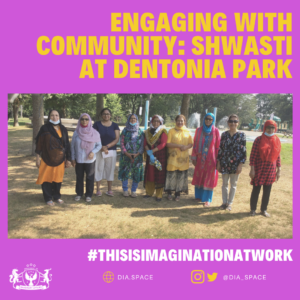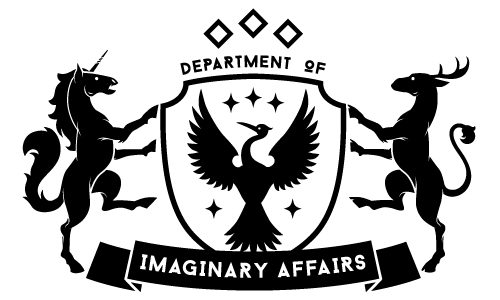 When I first started working with DIA as a social researcher for the “A Tale of Two Parks” project, I felt tremendous amounts of anxiety. I had just finished working on a play that I had co-created with a friend that shared my story, focusing on my personal experiences with gender and faith, which at best was met with tolerance, at worst, indifference. I started to worry that my role as a Storytelling Caretaker may be influenced by these experiences. I was anxious that I would start to listen to the stories I collected in the same frame of mind that my stories were perceived in. Having been told that my storytelling experience was “an excuse to use theatre as therapy” or “a self-serving project”, I had to work hard to unlearn that that there is no right way to tell a story, and the issues my critics had with my play had little to do with the contents of it, and more to do with who they thought was allowed to share stories. Having this experience in a theatre department at a University known for its out-right racism in a town that is primarily White and Christian, this shouldn’t have been a surprise. This experience is what made me gravitate to the role of Storytelling Caretaker/Social Researcher for “A Tale of Two Parks”.
When I first started working with DIA as a social researcher for the “A Tale of Two Parks” project, I felt tremendous amounts of anxiety. I had just finished working on a play that I had co-created with a friend that shared my story, focusing on my personal experiences with gender and faith, which at best was met with tolerance, at worst, indifference. I started to worry that my role as a Storytelling Caretaker may be influenced by these experiences. I was anxious that I would start to listen to the stories I collected in the same frame of mind that my stories were perceived in. Having been told that my storytelling experience was “an excuse to use theatre as therapy” or “a self-serving project”, I had to work hard to unlearn that that there is no right way to tell a story, and the issues my critics had with my play had little to do with the contents of it, and more to do with who they thought was allowed to share stories. Having this experience in a theatre department at a University known for its out-right racism in a town that is primarily White and Christian, this shouldn’t have been a surprise. This experience is what made me gravitate to the role of Storytelling Caretaker/Social Researcher for “A Tale of Two Parks”.
While working on this project, I had been doing my best to be careful to encourage a safe and brave space for others to feel comfortable to share, knowing how hard it was to be vulnerable in an environment that wasn’t safe or brave. Going into Dentonia Park, I had to constantly remind myself of the mantras I told myself going into school everyday – “I deserve to be here. I deserve to be respected. I deserve to share my story.”
Fostering a safe space was the most important aspect of my role as a social researcher. I wanted to motivate community members to have courage and be brave when they opened up about their lives and remind them not to hesitate to take up space in their communities. I wanted to motivate those who frequent Dentonia Park to not hide in fear when sharing their experiences.
Witnessing the different communities of people who used Dentonia Park for various events, meetings, get-togethers or even as a place to relax was heartwarming. It was empowering to see BIPOC folx not have to think twice about praying in the park, exercising in the park, having political get togethers in the park – it was empowering to see BIPOC folx thrive in their communities.
In all my efforts to empower others to share their stories and have the courage to open up about difficult things, I was surprised to find that I was the empowered one. Having met and conversed with groups like Shwasti, a Bengali community of seniors who meet to exercise and share food and space with one other at Dentonia Park regularly, I was blown away to see how supportive they were of each other, motivating one another to open up and share a story with us.
It amazed me to see how much the Bengali community specifically has placed roots in and around Dentonia Park. Being a child of immigrants, specifically, Tamil, Sri Lankan immigrants, I was raised to never talk about the pogram that occurred in Sri Lanka or take pride in being a Tamil Sri Lankan publicly because of the controversies of the Tamil Rebel Group in Sri Lanka. Even when we lived in Scarborough, even when we were connected with our extended family and other members of the village that my parents grew up in, we were still hiding. Having experienced the love and support of the Bengali community in the Crescent Town/Dentonia Park area makes me hopeful that things will start to change. It makes me hopeful for future generations of immigrants and newcomers as they adjust to life in Canada.
To hear and watch the stories that members of Shwasti shared with us, please visit our “A Tale of Two Parks” playlist on Youtube. The stories that were shared with us were shared both in English and in Bengali.
For more information about Shwasti, please contact Nadira Dolly Tasbassum at presidentshwasti@gmail.com.
